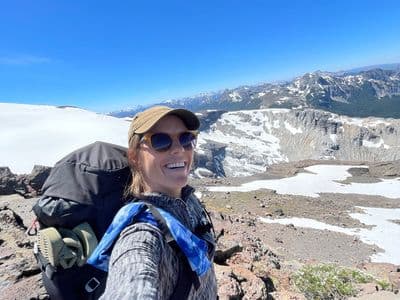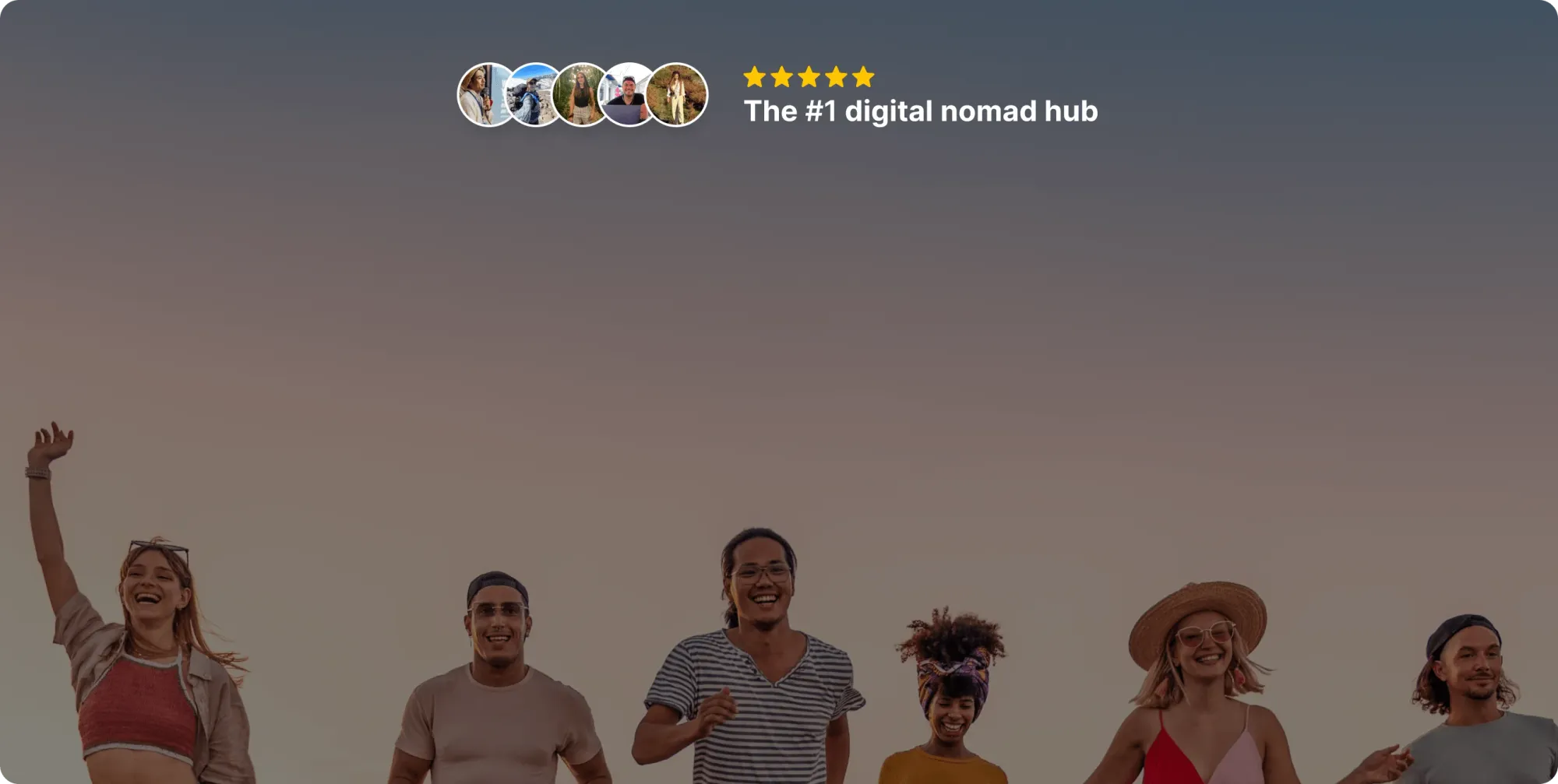Insured Nomads Review: Honest Take for Full‑Time Travelers
Honest look at Insured Nomads insurance, what’s covered, what’s not, and which travel insurance alternatives might suit nomads better.


Insured Nomads is a relatively new player in the nomad insurance world, but one built specifically with digital nomads, remote workers, and expats in mind.
They’re a globally distributed company with entities in numerous countries and their plans work like building blocks: start with a basic policy, then add extras like electronic equipment cover, extreme sports, and get get benefits such as unlimited telemedicine and mental health therapy and even airport lounge access (which I didn’t expect from an insurance provider, to be honest).
In this review, I’ll break down what’s actually included, what’s not, and what real users think, so you can figure out if Insured Nomads is worth it for your travels.
Is Insured Nomads Actually Legit?
When you’re picking insurance as a nomad, trust is everything. The good news is Insured Nomads checks out.
Their travel plans come from their U.S.-registered company based in Alabama, and their plans are backed by big-name insurers like Nationwide and Crum & Forster, both known for financial strength and stability (A+ rated) coverage. That means your policy is underwritten by established players in the insurance world.
Which Insurance Plans Does Insured Nomads Offer?
Insured Nomads keeps things pretty simple. They’ve got three options: two for short trips and one series for when you’re living abroad long-term.
| Feature | Connect ($500k, $1 million or $3 million) | Insured Travelers Med+ | World Explorer Guardian |
|---|---|---|---|
| Plan duration | Long-term (1 year+) | Short term to medium term (1-364 days, and extends) | Short/medium-term (7–364 days) |
| Main focus | Full medical coverage for living abroad | Accident and illness coverage for outside your passport country | Emergency medical coverage for travel |
| Type of medical coverage | Routine care, hospitalization, prescriptions, mental health (add-ons) | Illness and emergency coverage | Emergencies, accidents, evacuation |
| Medical evacuation | ✅ | ✅ | ✅ |
| Mental health & wellness | ✅ | ✅ | ✅ |
| Telemedicine | ✅ | ✅ | |
| Access to private hospitals | ✅ | ✅ | ✅ |
| Non-medical coverage (luggage, etc.) | ❌ | ✅ | ✅ |
1. Connect
These are their long-term plans (backed by Allianz Partners, France) for when you’re actually living somewhere abroad for a year or more, like moving to Portugal, Mexico, or Thailand. You can get it with a wide range of deductibles, and just inpatient if you are treating it more as a catastrophic plan.
They go beyond emergencies and cover regular doctor visits, prescriptions, blood tests, and even optional extras like dental or maternity care. Basically, it’s what you’d want if you’re setting up a home base somewhere and need real health insurance.
2. Insured Travelers Med+
This one’s for trips from 1 day up to a year. It’s great if you’re maybe spending a few weeks in Brazil or exploring Southeast Asia for a couple of months.
It covers illnesses, accidents, and emergencies (so if you break a leg, get an infection, or end up in the hospital, you’re covered), emergency evacuation, flight interruptions and delays, lost luggage, and flight delays.
The catch is that it doesn’t cover your routine doctor checkups, because that would be a health plan for that type of need.
3. World Explorer Guardian
This one’s for trips from 7 days up to a year. It’s great if you’re maybe spending three months in Bali or exploring Europe for the summer, with our without cancellation benefits.
It covers medical emergencies and illnesses (so if you break an arm or end up at a clinic or in the hospital, you’re good), emergency evacuation, lost luggage, and flight delays. Again, they are including airport lounge access if your registered flight is delayed via InstaPass.
Like the previous plan, the downside is that it doesn’t cover your routine doctor checkups.
Insured Nomads Pricing
Pricing with Insured Nomads isn’t one-size-fits-all. It depends on things like your age, how long you’re traveling, and which plan you choose.
To give you a rough idea, here’s what it looks like for a 30-year-old nomad based on average costs:
| Plan | Plan duration | Base price (30 days) | Annual price |
|---|---|---|---|
| World Explorer Guardian 50 | Short or medium-term (7 to 364 days) | US$36 | US$432 |
| Connect ($500k) | Long-term (1 year or more) | US$237/mo | US$2,844 |
| Insured Travelers Med+ 50 | Short or long-term (1 day to many months) | US$53 | US$636 |
Insured Nomads isn’t the cheapest option out there, but, in theory, you’re paying for flexibility and extras like telemedicine and airport lounge access.
Whether that price tag feels worth it? We’ll dig into that a bit later when I share my own experience using them.
What’s Covered By Insured Nomads Insurance Plans
Here’s what you really get when you sign up (and what it means in real life):
Emergency medical care
If you get sick or injured while traveling, Insured Nomads covers you for urgent care, like doctor visits, emergency meds, and procedures you actually need right away. So if you get Bali belly or have a scooter accident, you won’t be stuck with the bill.
What’s not included are routine checkups or pre-existing conditions (unless you pay for health insurance).
Emergency evacuation
This is for those “worst-case” moments, like having an accident in the middle of nowhere or being caught in a natural disaster. Insured Nomads will arrange and pay to get you to a proper hospital, or even fly you home if needed, and with the CARE: crisis assistance relocation and evacuation benefit you get accommodation and transport for non-medical emergencies such as a typhoon, volcanic eruption, wildfires, terrorist attack and more.
Lost or stolen luggage
If your bag goes missing, gets stolen, or is damaged, you can claim up to around $1,000–$3,000 depending on your plan. Keep receipts, though, and don’t expect a payout if you left your bag unattended.
If you travel with laptops, cameras, or other gear, the electronic equipment add-on cover on the Insured Travelers Med+ gives up to $5000 in benefit on electronic equipment being stolen during your plan.
Travel delays
If your flight’s delayed by more than 12 hours, they’ll cover things like meals or a hotel stay while you wait. On Connect health plans, you get unlimited Priority Pass lounge network access, and then on the travel plans, you also get airport lounge access via InstaPass if you register your flight in advance.
Routine care (Connect plan only)
If you’re on the Connect plan, you also get coverage for routine doctor visits, vaccinations, prescriptions, diagnostic tests like bloodwork, and much more.
What’s NOT Covered By Insured Nomads Insurance Plans
Like all insurance, there are things Insured Nomads won’t cover unless you pay for extras. Here are the big ones:
Pre-existing conditions
These aren’t included in most plans by default. You can add them as extras, but it’ll bump up your premium. Health insurance plans like their Connect cover them if approved at the time of application. On the World Explorer Guardian, you have some pre-existing condition coverage, and acute recurrence of a pre-existing condition is covered on the Insured Travelers Med+. Still, if you have an ongoing condition, it’s worth thinking about. Paying out of pocket abroad could be a lot worse.
High-risk activities
Planning on scuba diving, paragliding, or bungee jumping? You’ll need the Adventure & Extreme Sports add-on. Even then, check their list of what they consider “extreme” because some activities might still be excluded.
Non-Medical cancellations
If your flight is canceled, it’s not covered unless you’ve purchased the World Explorer Guardian plan.
My (Brutally Honest) Experience Using Insured Nomads
I picked Insured Nomads because, on paper, they looked solid: backed by well-known underwriters, built for people like us... And to be fair, my experience wasn’t bad. I felt covered, and the policy did what it said it would.
But after using it and talking to other nomads, I’m not completely sold. A lot of people complain about slow reimbursements, sometimes taking months, and customer support did drag its feet in my case too. That’s the last thing you want when you’re sick or stuck abroad.
For me, the process felt clunky. Filing a claim wasn’t as straightforward as I expected. By comparison, SafetyWing is way easier to deal with, and Genki even covers some pre-existing conditions without all the hoops. With Insured Nomads, you pay more, but it doesn’t feel smoother or more transparent.
If you just need short-term travel insurance, it’s fine. But for long-term nomads, honestly, I wouldn’t recommend it. There are better options out there that cost less and are easier to work with.
If I had to sum up where Insured Nomads could improve, it would be speed and communication. Faster claims, support that actually picks up when you need it, and clearer policy details would make a world of difference. Until then, it feels like you’re paying for peace of mind, but not always getting it when it counts.
Travel Insurance Alternatives to Insured Nomads
If Insured Nomads doesn’t feel like the right fit, you’ve got options. Plenty of other insurers are out there that might suit your style (and budget) a lot better.
Genki
Genki was built for digital nomads from the ground up. It’s affordable, covers emergency medical care, and even includes some limited pre‑existing conditions (which is rare). It doesn’t cover trip cancellations, but if all you really need is medical coverage without a ton of extras, it’s a solid pick.
SafetyWing
SafetyWing is pretty much a household name among nomads. Their Essential Plan is affordable, covers you almost anywhere in the world (even the US), and the claims process is fast and painless. It covers the basics: medical, evacuation, some belongings, and even a bit of adventure sports. If you’re traveling long-term or relocating permanently, it’s a no‑brainer.
Heymondo
Heymondo offers flexible plans for short and long trips and has one of the easiest apps to manage policies and file claims. It covers medical care and even trip cancellations, which makes it great for families or frequent travelers who want something simple and stress‑free.
Bottom line: Insured Nomads works fine for short, one‑off trips if you like perks like lounge access. But if you want something cheaper, easier to use, or more comprehensive, SafetyWing or Genki will probably make you feel more secure on the road.
Ready to Protect Your Travels?

Join our global
digital nomad community
Join us for free
Freaking Nomads is supported by you. Clicking through our links may earn us a small affiliate commission, and that's what allows us to keep producing free, helpful content. Learn more
Read Next


Top Digital Nomad Visas in Schengen Countries


VirtualPostMail Review: My Honest, Hands-On Experience


